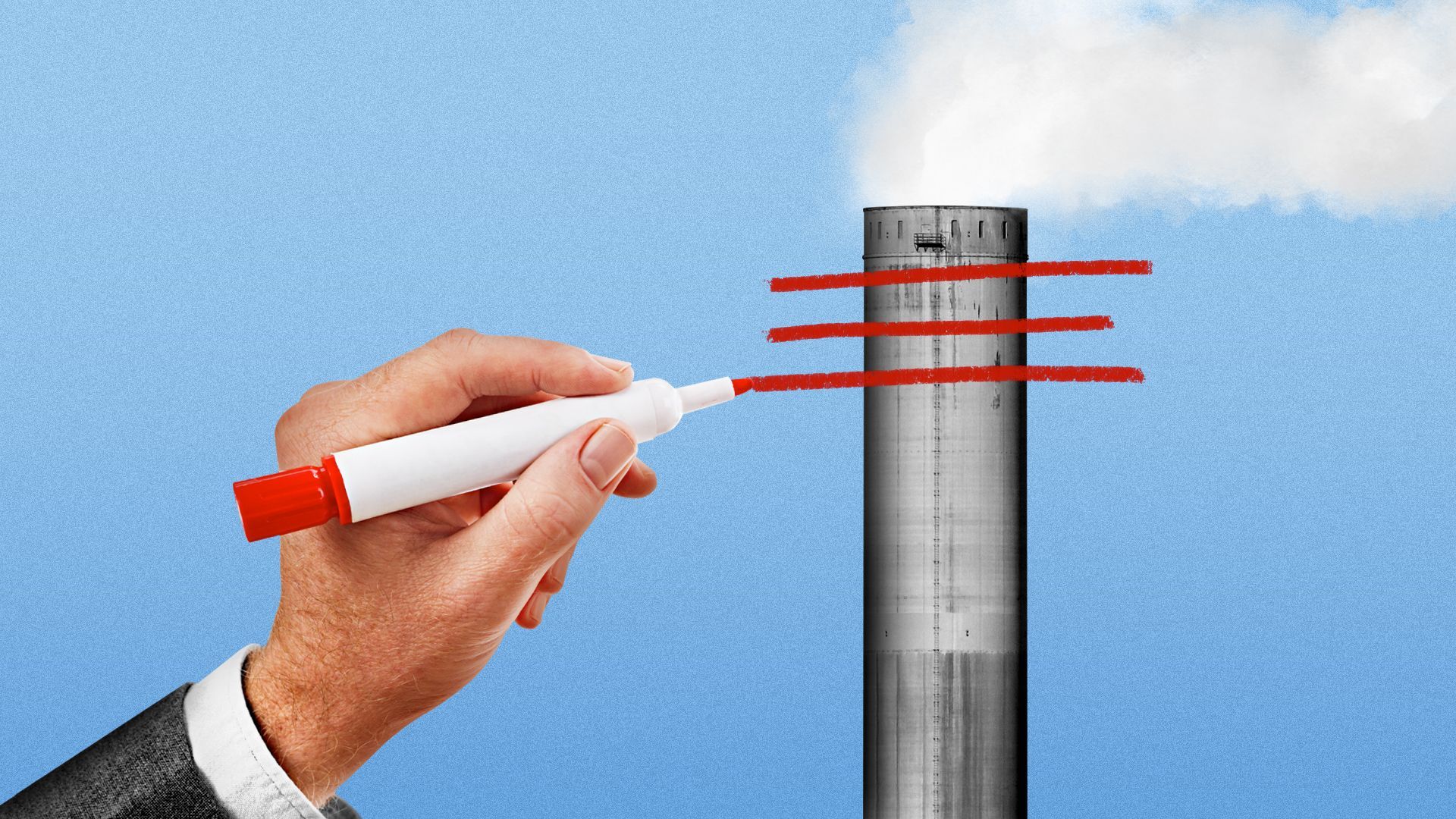
Illustration: Aïda Amer/Axios
Sen. Bill Cassidy finally unveiled his carbon tariff bill on Thursday.
Why it matters: The proposal is an important starting point for the GOP on carbon tariffs, and could offer statutory authority for future climate-based trade agreements.
Details: The Foreign Pollution Fee Act would put a new levy on imports of fossil fuel, renewable energy and heavy industrial products.
- The tariff would be assessed based on the difference in emissions intensity between U.S. products and imported goods.
- At first, the goal would be to ensure that imports are no more than 50% more pollution-intense than their U.S. counterparts, but that would ramp down to 25% and then to 10%.
- It would draw data on U.S. production from EPA and direct the national labs to calculate the emissions intensity of imports based on national averages.
- The fee could be waived in certain cases for free trade partners, but it also offers anti-circumvention authority to the U.S. trade representative.
Of note: The bill wouldn't impose any tax on U.S. goods — a politically toxic idea for conservatives.
- To make that clear, Cassidy introduced an anti-carbon tax resolution last week.
- He was able to secure two GOP cosponsors on the pollution fee: Lindsey Graham and Armed Services ranking member Roger Wicker.
- Cassidy is selling his bill as a way to combat pollution and unfair trade practices from China and Russia.
What they're saying: Cassidy told reporters he wants to "continue to socialize" the bill with both parties and with outside trade organizations.
- Cassidy sees it as inextricably tied to the Hill conversation about environmental permitting because quicker project approvals could mean more robust U.S. supply chains.
- Graham said, "One of the missing ingredients in the climate change debate is, how do you force China and India to play better? This is one way to do it."
- And Sen. Sheldon Whitehouse told reporters, "When we have a Republican proposal to set against the Democratic proposal that we've had for several years now, that creates the negotiating space to try to come up with a bipartisan agreement."
Zoom in: The bill would also establish a framework for carbon club-style trade partnerships with lower income countries.
- That's especially notable, given that the Biden administration is currently in talks with the EU on a carbon-based trade arrangement for steel and aluminum.
- "Intriguingly, we would describe the FPFA as potentially aligned with intensity-based protocols the Biden administration has proffered in talks with the EU," ClearView Energy Partners wrote in a research note Thursday.
Our thought bubble: This is unlikely to be enacted soon, and we're a bit skeptical about the potential for broader immediate GOP support.
- But it does toss a little gas on the permitting and energy package fire, and shows that climate is going to be a big part of the future of trade.
- As ClearView put it: "U.S. carbon border adjustments seem increasingly likely as trade war evolves into carbon trade war."
What to watch: How Democrats try to reconcile this bill with their own proposals to enact a border fee alongside a domestic carbon tax.
- Plus, Sen. Chris Coons is looking for a way to pass the PROVE IT Act, which seeks to lay more informational groundwork for this kind of policy.
